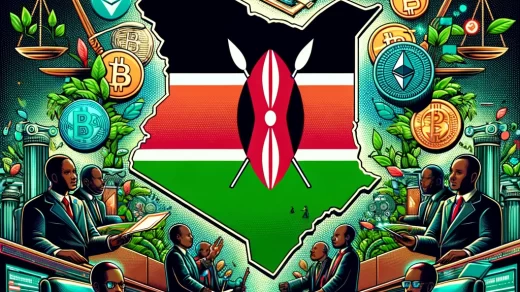Kenya’s journey through the evolving landscape of Virtual Assets (VAs) and Virtual Asset Service Providers (VASPs) has been marked by cautious steps and regulatory vigilance.
Despite having a robust Anti-Money Laundering/Counter-Terrorism Financing (AML/CFT) legislative framework in place, Kenya faces a unique challenge: the absence of a legal framework specifically governing or licensing the activities of VAs and VASPs.
This gap has left VASPs operating in a regulatory limbo, unregulated for AML/CFT purposes. Below, we explore the key regulatory developments that have shaped Kenya’s approach to VAs and VASPs.
Early Warnings and Cautions
December 2015:
The Central Bank of Kenya (CBK) issued its first public notice regarding cryptocurrencies like Bitcoin. Highlighting the decentralized nature of these assets and the risks associated with them, the CBK made it clear that virtual currencies were not recognized as legal tender in Kenya. This notice underscored the lack of protection for users in case of platform failures, setting an early tone of caution.
Banking Circular of 2015:
In tandem with the public notice, the CBK also directed a circular to all banks within the country, advising against engaging in transactions related to virtual currencies or dealing with entities involved in such currencies. This move aimed to mitigate potential risks to the banking sector from the unregulated nature of VAs.
Broader Regulatory Warnings
2018 Notices:
Amidst growing concerns over fraudulent financial services, the CBK, along with other financial sector regulators—including the Capital Markets Authority (CMA), Sacco Societies Regulatory Authority (SASRA), Retirement Benefits Authority (RBA), Insurance Regulatory Authority (IRA), and the Ministry of Trade and Cooperatives—issued public notices.
These notices warned against dealing with unlicensed and unregulated financial products and services, urging the public to verify the regulatory status of financial institutions.
The COVID-19 Pandemic Response:
In August 2020, as the COVID-19 pandemic led to a resurgence of fraudulent financial schemes, financial sector regulators reinforced their warning against unlicensed financial products and services. This reiterated the government’s commitment to protecting consumers from emerging financial risks during the pandemic.
September 2020 Circulars:
The CBK issued further circulars to banks and Payment Service Providers (PSPs), cautioning them against engaging with unlicensed entities.
These circulars emphasized the risks of using, partnering with, or facilitating services from unregulated and unlicensed entities, reminding financial institutions of the previous year’s public notice.
Looking Forward: The Path to Regulation
Kenya’s cautious approach to the regulation of VAs and VASPs reflects a broader global challenge: balancing the promise of innovation with the need to protect consumers and maintain financial system integrity.
As the country continues to navigate these uncharted waters, the development of a specific legal framework for VAs and VASPs remains a critical next step. Such a framework would not only clarify the regulatory landscape but also enhance Kenya’s position as a leader in digital finance, fostering innovation while ensuring robust AML/CFT protections.
The journey ahead requires a collaborative effort among regulators, industry stakeholders, and the global community to harness the benefits of digital finance while mitigating its risks. As Kenya charts its course, the lessons learned and the policies developed will undoubtedly contribute to the global discourse on the regulation of virtual assets and their service providers.




